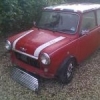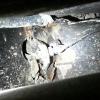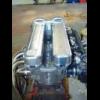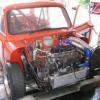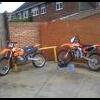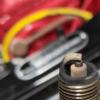
Decompression Plates...
#16

Posted 27 December 2012 - 11:35 AM
#17

Posted 27 December 2012 - 11:37 AM
#18

Posted 27 December 2012 - 01:09 PM
Thats about right!What tends to happen is someone hears something and then regurgitates that information in a similar thread. They have no research or evidence whatsoever, but jump on the bandwagon to appear to be informative and knowledgeable.
Jd
#19

Posted 28 December 2012 - 10:01 PM
I guess if you look at it in different lights then everyone has their own personal view, call it a bodge if you will but then again if you modify something from standard then technically thats a bodge because it was not how it was designed to be.
I'd rather call it engineering.
Thanks for everyones views, its nice to look at something from alternative angles.
#20

Posted 28 December 2012 - 10:07 PM
and well there is a big difference between engineering and bodging.
the difference is the person and reason for doing something, if you were doing it for a legitimate reason while taking account for all the angles and possible issues, thats engineering, using duct tape over a hole to get through a mot is a bodge.
thats how one thing can be both engineered and a bodge, like the decomp plate being engineered as a weak spot on production diesels, yet one man in a shed who cannot be bothered to machine down his head and using a decomp plate instead is a bodge.
and yes engineering something is a lot more rewarding, and I am now correcting a lot of bodges on my car with well thought out fixes.
probably why I am doing a degree in motorsport engineering
#21

Posted 28 December 2012 - 10:14 PM
The world is full of disagreements, thats life! Personally I enjoy it.
and well there is a big difference between engineering and bodging.
the difference is the person and reason for doing something, if you were doing it for a legitimate reason while taking account for all the angles and possible issues, thats engineering, using duct tape over a hole to get through a mot is a bodge.
thats how one thing can be both engineered and a bodge, like the decomp plate being engineered as a weak spot on production diesels, yet one man in a shed who cannot be bothered to machine down his head and using a decomp plate instead is a bodge.
and yes engineering something is a lot more rewarding, and I am now correcting a lot of bodges on my car with well thought out fixes.
probably why I am doing a degree in motorsport engineering
It is not necessarily a weak spot?
Drop brackets are a weak spot- they allow more flex.
Adjustable camber brackets are notorious for snapping
Spaced drums put more wear on the bearing.
A decompression plate made from the correct material Will have NO adverse effect on reliability.
#22

Posted 28 December 2012 - 10:19 PM
drop brackets do increase "flex" but only really when the steering lock is on and tightening the steering wheel nut has it ever been a problem for me personally,
camber brackets apart from KAD are crap, thats neither engineering nor a bodge its just plain bad design,
and spacered drums are originally for use with wheels with a different offset so using them with correct wheels will mean no more stress on the bearings, anyone using them with wrong offset wheels would increase wear but its not really a problem.
#23

Posted 28 December 2012 - 10:29 PM
I'm going to buy myself a reliant robin now because With three wheels there's less chance of having a blow-out
#24

Posted 28 December 2012 - 10:29 PM
you wont be getting a head and block sealed without a gasket though as it was designed with one in mind...
i have done it, it can be done but isn't practical to do.
well decomp plates use two head gaskets
WHAT!!! who the hell would use two head gaskets with a decomp plate??
#25

Posted 28 December 2012 - 10:35 PM
if its the latter then there would be more of a chance of failure due to larger area of weaker material
and well done on getting a head and block to seal without a gasket, bet it took a while to skim both with the correct tolerances?
#26

Posted 28 December 2012 - 10:57 PM
head and barrel was easy to do without a gasket, just time consuming. valve grinding paste on a sheet of glass just turn it 90deg each way and did each one until it was an even colour/texture all over, the the same but with finer paste. when they were both done lapped them together, made a sleeve that was bolted to the head through the spark plug hole and into the barrel to keep them aligned.
built it back up and it was fine, no loss of pressure or coolant loss.
#27

Posted 28 December 2012 - 11:00 PM
Edit: and thanks for the link clears it up in my head as I havent looked into decomp plates in detail and was just going by what I have been told and whats logical,
they do seem weaker when heat is concerned, obviously as they are a fraction of the width, logic would dictate that it would be the first think to go under extreme temperatures which still agrees with engineering in a weak spot, whether or not thats the reason why some manufacturers use them from the factory I dont know
Edited by Alex_B, 28 December 2012 - 11:05 PM.
#28

Posted 28 December 2012 - 11:51 PM
they won't be weaker though, if it's an ally plate, used with an ally head, then it's no weaker than the head or pistons. if it's a steel plate then the pistons are 'weaker' than the steel plate.
#29

Posted 29 December 2012 - 09:04 AM
1) Sandwich it between to head gaskets
2) use a sealant and 'glue' it on to the head or block surface and assemble as normal.
Both will work. The single head gasket option is better but requires more consideration in assembly.
In some cases it is impossible to build an engine without one, but i personally would avoid it if possible. Pushrod issues is the main reason. Other than that you are creating a large piston to deck height, which is not ideal for engine efficiency and hence ultimate power.
And just to clear up a statement that has proliferated this thread, two head gaskets do not double the chance of failure, the failure rate would be the same. the reason for this is that gaskets have a life expectancy in the conditions they are working in, both gaskets will be working in the same conditions.
#30

Posted 29 December 2012 - 12:33 PM
1 user(s) are reading this topic
0 members, 1 guests, 0 anonymous users




